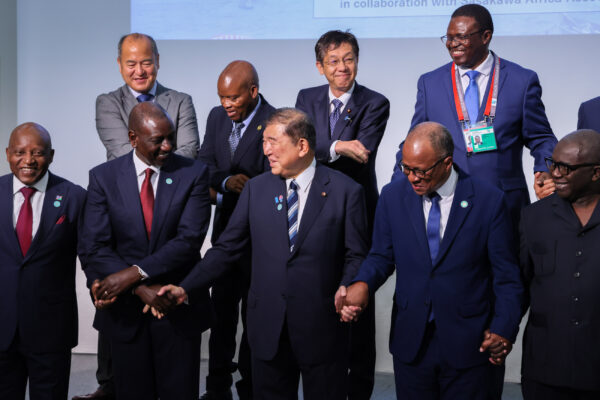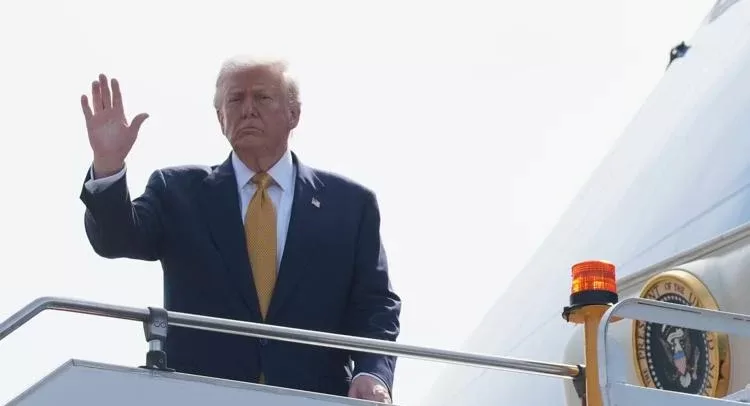Copyright thediplomat

The Ninth Tokyo International Conference on African Development (TICAD9) was held in Yokohama in late August with a basic theme of “Co-create innovative solutions with Africa.” At the Public-Private Business Dialogue during the opening ceremony, then-Japanese Prime Minister Ishiba Shigeru presented a new direction titled “From Aid to Investment,” during which he announced a number of support initiatives. This support consisted of three areas: the sustainable growth of private sector, youth and women, as well as regional integration and intra-extra-regional connections. This new direction for Japan’s engagement, From Aid to Investment, sends a strong message that Japan seeks to build relations with Africa that focus on the sustainable growth of the private sector. It includes Japan Africa CoCreation for Industry (JACCI), in which African startups and Japanese companies collaborate to build industry, bolstering the functions of Enhanced Private Sector Assistance for Africa with an additional investment of up to $5.5 billion, and making public-private (collaborative) impact investments of some $1.5 billion via overseas investors and lenders of the Japan International Cooperation Agency (JICA). Impact investments may be understood as investments designed to both create impact aimed at resolving environmental and social issues and deliver economic benefits. One feature of TICAD9 was that this major shift in direction, namely “From Aid to Investment,” was limited to $5.5 billion in infrastructure financing; the total public-private target for the next three years, conventionally announced at TICAD, was not disclosed. However, many observers noted that the number of memorandums of understanding (MOUs) signed by Japanese companies with local governments and other organizations reached 324, significantly higher than the 92 of the previous TICAD8. This outcome demonstrates the growing involvement of the Ministry of Economy, Trade and Industry (METI) in the TICAD process, with METI presenting a project on human resources development in Kenya and a project on strengthening the investment climate and economic relations with the Ivory Coast. The Japan Bank for International Cooperation (JBIC), the Nippon Export and Investment Insurance (NEXI), JICA, and other government-affiliated companies and organizations likewise announced the signing of several MOUs. Moreover, Toyota Tsusho Corporation, which has one of the longest track records in Africa of any Japanese company, drew attention by signing 44 MOUs. Meanwhile, the Economic Region Initiative of Indian Ocean-Africa, launched at TICAD9, is an initiative aimed at revitalizing trade and investment in the vast geographic area of Africa and the Indian Ocean region, and serves as a key component of Japan’s vision of a Free and Open Indo-Pacific (FOIP). Here, there is the expectation that if the African Continental Free Trade Area (AfCFTA) is realized as a massive consumer market, it will create a single market with a GDP of $3.4 trillion and a population of about 1.5 billion people. Moreover, this action plan emphasizes the roles of the Middle East (such as the Gulf countries) and India in the African economy and promotes initiatives for Africa’s regional integration and industrial development in collaboration with Indian Ocean countries such as India and Middle Eastern countries. This supports the efforts of Japanese companies wanting to develop trade and investment markets with Africa from Indian Ocean countries, while also serving the aim of obtaining “actual benefits” for Japan through the involvement of Japanese companies in this economic zone. More specific initiatives exemplified by this initiative include the promotion of import and export hub development in places like Mombasa Port in Kenya and Nacala Port in Mozambique and the strengthening of the industrial base and value chains in combination with infrastructure development and logistics upgrades. In particular, efforts to promote logistics through the development of the Nakara Corridor, which connects the inland areas of Africa and the Indian Ocean coast and which will improve the supply of mineral resources, are the culmination of wide-area, offer-based cooperation that promotes regional industrial development. Offer-based cooperation is a new measure launched in the Development Cooperation Charter revised in June 2023. In areas that ought to be strategically addressed in terms of foreign policy, the aim is to actively propose to developing countries attractive cooperation packages that leverage Japan’s strengths in the form of not only ODA but also other official flows (known as OOF) and private funding, thereby achieving development goals through dialogue with partner countries as well as “co-creation” that jointly creates new value that brings about change in society. It also has the purpose of solving development challenges in developing countries while at the same time addressing Japan’s problems and economic growth. With this in mind, developing the Nakara Corridor may be thought of as a key initiative in terms of offer-based cooperation in Japan’s foreign policy. As mentioned in the “social” area of the Yokohama Declaration, the importance of strengthening health systems to achieve universal health coverage as an extension of existing policy, helping young workers develop expertise in AI and other areas, and fostering mutual exchanges among young people in Japan and Africa will all be key to the joint development of industry between African startups and Japanese companies. In particular, one part of the declaration stated: We highlight the importance of mutual exchanges between African and Japanese youth to promote creativity and sustainable socio-economic change and recognize the importance of affording more opportunities for African youth to develop their potential, and to partner more directly with Japanese youth with a view to co-creating transformative solutions. Realizing this will be critical in building long-term relationships. This is a significant area of cooperation for truly realizing “a prosperous Africa based on inclusive growth and sustainable development,” a goal set by the African Union (AU) in its Agenda 2063. Among these outcomes at TICAD9 are those that are directly linked to the challenges of inclusive economic growth, industrialization, employment, and reducing inequality, all priority topics under the theme of “Solidarity, Equality and Sustainability” for the G-20 Summit (South African Presidency) slated to be held in Johannesburg, South Africa in late November. Whether the G-20 can work together to address issues in a world that appears increasingly divided will be an important indicator of the outlook for the international order.



